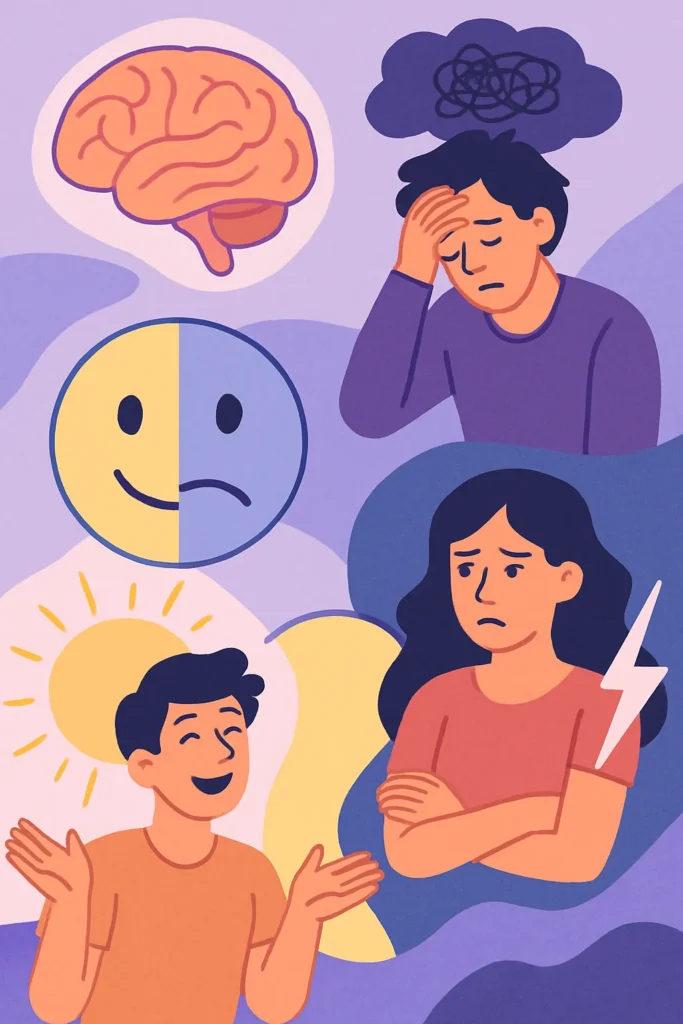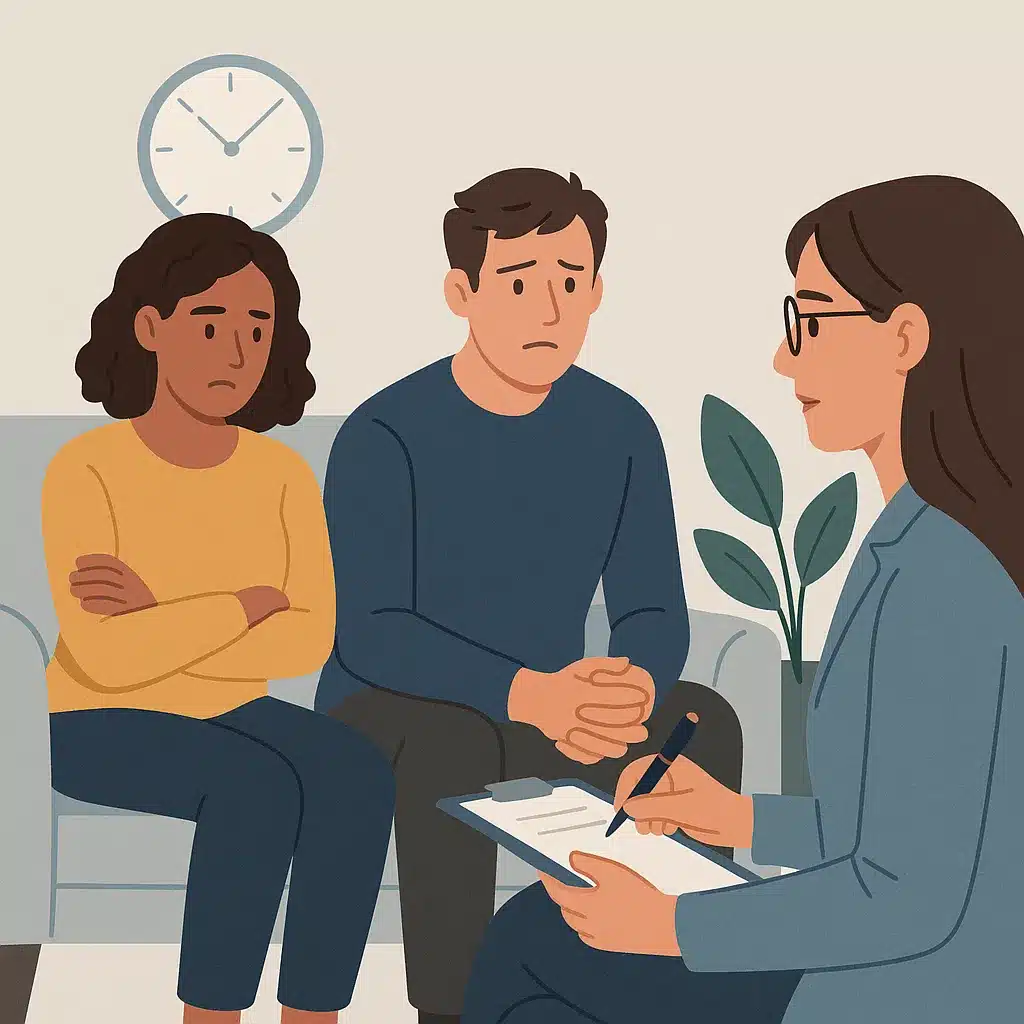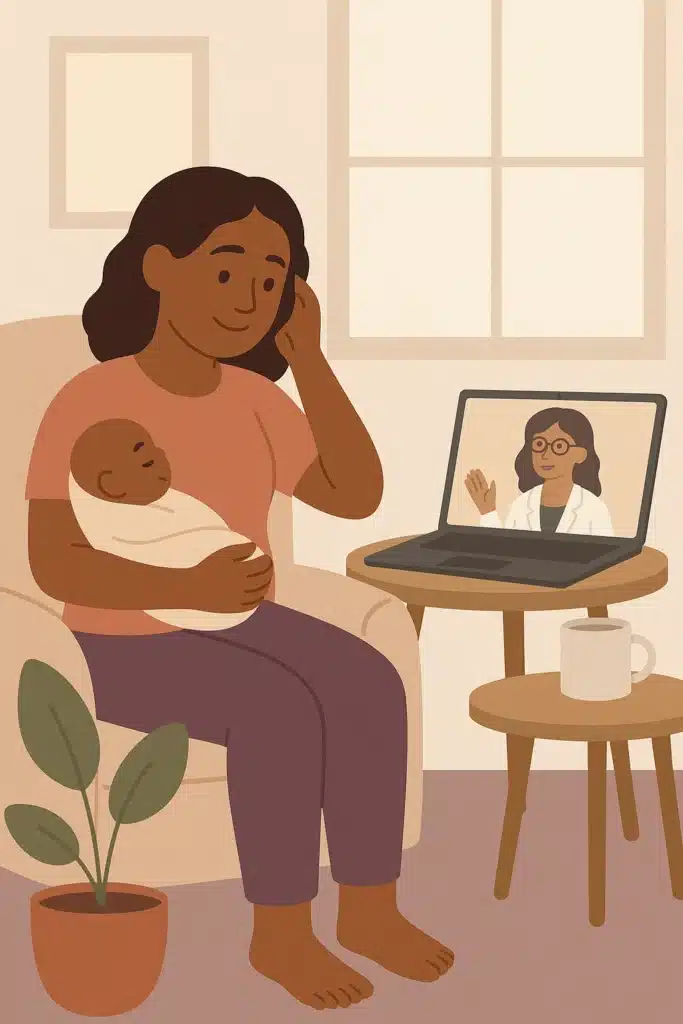Bipolar Therapist NYC: Find the Right Support
Finding a reliable bipolar therapist in NYC can be the first step to a more stable and manageable life. Anat Joseph, LCSW, PsyA, brings years of clinical experience and psychoanalytic training to support individuals navigating bipolar disorder and related mental health conditions. Her approach centers on tailored care, grounded in professionalism, empathy, and practical therapeutic tools.

Understanding Bipolar Disorder
Early Signs and Red Flags
Bipolar disorder can start with subtle changes in mood, energy, or behavior. One of the first warning signs is a quick change from feeling very happy or irritable to feeling sad or hopeless. These shifts may seem unrelated to external events and can disrupt daily routines. Recognizing these patterns early is essential for getting the proper bipolar treatment.
Types and Common Symptoms
The main types of bipolar disorder include bipolar I disorder, bipolar II disorder, and cyclothymic disorder. Bipolar I includes manic episodes that can last a week or longer. Bipolar II has hypomanic episodes and longer depressive episodes.
Common symptoms of bipolar disorder include extreme mood changes, impulsive behavior, and trouble sleeping. People may also experience prolonged periods of emotional unease, which can impact their work, relationships, and mental health.
Treatment and Therapy Options
What Type of Therapist Is Best?
The best therapist for bipolar disorder is someone trained in evidence-based methods and experienced in treating bipolar conditions. Licensed Clinical Social Workers, psychologists, and psychiatrists can all serve as qualified bipolar therapists, depending on your needs. It’s also essential that the therapist is familiar with how mood disorders affect daily functioning and family dynamics. A strong therapeutic relationship helps build trust and long-term progress.
Therapy and Long-Term Care
Effective treatments for bipolar disorder usually combine medication and talk-based therapy. Cognitive behavioral therapy (CBT) helps individuals identify and change harmful thought patterns, while interpersonal and social rhythm therapy supports the stability of their daily routines. Talk therapy encourages open discussion of feelings, behaviors, and goals, providing a safe environment for healing. People often use these methods together to manage both manic or hypomanic episodes and depressive symptoms.
Finding a Bipolar Therapist in NYC
What Type of Therapist Is Best?
In New York City, there are many providers, but finding a qualified bipolar therapist in NYC requires careful research. Look for therapists who specialize in mood disorders and have experience working with clients across various mental health conditions. Training in psychoanalysis or CBT provides a plus, especially when therapists must adapt therapy for shifting emotional states. Anat Joseph is a therapist who provides support based on each client’s unique history and needs.
How to Choose the Right Therapist
Consider factors like experience, licensing, therapeutic approach, and communication style. A good bipolar therapist should help you feel understood while offering tools to manage emotional ups and downs. It’s also beneficial to inquire about their familiarity with therapies for bipolar disorder care. This includes family-focused treatment and CBT.
The right match can significantly improve the therapy experience and long-term outcomes.
Questions to Ask Before You Begin
Before you commit, ask the therapist how they treat bipolar disorder. Determine if they collaborate with psychiatrists and how they monitor progress. You can also ask about their experience with bipolar I disorder, medication management, and crisis planning.
Clarifying these details early helps set expectations. It also allows you to gauge if the therapist’s values and style align with yours.
Practical Tips for Choosing a Therapist in NYC

Consider Location, Cost, and Compatibility
Choosing the right therapist involves more than credentials. Look for someone whose availability, office location (or virtual services), and communication style fit your needs. Many therapists in NYC offer evening or weekend sessions, which may be more convenient for your schedule. You should also ask if they accept insurance, offer a sliding scale, or provide session packages.

Aligning with Cultural and Personal Values
A strong therapeutic relationship is based on trust and mutual understanding. Some people prefer working with therapists who understand their cultural background, gender identity, or personal experiences. Many therapists list this information in their bios or websites. You can also bring this up during your consultation.
Local Support and Resources

Clinics, Centers, and Hotlines
In addition to private therapy, many clinics in NYC offer structured bipolar treatment programs. These include outpatient services, crisis hotlines, and psychiatric support for managing side effects of medication. Community mental health centers may also help individuals access affordable therapy. People find these services especially useful during manic episodes or times when they need support outside regular sessions.

Support Groups in New York City
Support groups offer a valuable space for connecting with others who face similar challenges. Whether in person or online, these groups enable participants to share coping strategies and reduce feelings of isolation. Some focus specifically on bipolar disorder, while others address broader mental health conditions. Involving family members in support groups can also help improve understanding and communication at home.

Bipolar Disorder in Public Awareness
Famous People with Bipolar Disorder
Many public figures have spoken openly about their experiences with bipolar disorder, helping reduce stigma and encourage treatment. For example, actress and mental health advocate Carrie Fisher often discussed her struggles with bipolar I disorder. She used her platform to promote understanding and self-acceptance.
Singer Demi Lovato has also shared her diagnosis and journey with treatment, including therapy and medication. Their openness shows that people living with mood disorders can lead full and productive lives with proper care and support.
These public conversations highlight the importance of seeking help early and staying consistent with treatments for bipolar disorder. When celebrities share their challenges and successes, it makes the condition more relatable and less isolating. This visibility encourages others to prioritize their mental health and feel empowered to ask for help. Normalizing these stories plays a key role in helping others take the first step toward recovery.
Meet Anat Joseph, LCSW – Your Anger Management Therapist in NYC
Over 20 Years of Experience Helping Clients Regain Control
Anat Joseph, LCSW, is a licensed therapist in NYC with over two decades of experience supporting clients struggling with anger. She helps individuals understand their triggers and build healthier responses.
A Personalized and Practical Approach
Everyone’s relationship with anger is different. Anat Joseph offers tailored strategies to manage intense emotions, improve communication, and restore balance in daily life.
Because Your Happiness Matters.

Getting Started with Therapy
Because Your Happiness Matters.
What to Expect in Your First Session
In your first session, your therapist may ask about past depression episodes. They might also ask about any manic or hypomanic episodes. Additionally, they will want to know about any current medications, like mood stabilizers.
They may also discuss your sleep patterns, relationships, and work-life balance. This information helps them design a treatment plan that fits your specific needs. Over time, regular sessions can support lasting change and better emotional control.
Final Thoughts
Bipolar disorder is a complex but manageable mental health condition. With the proper support, including therapy and medical care, individuals can build healthier routines and relationships. Effective treatments can help people feel more stable and gain a better understanding of themselves.
Two examples of these treatments are cognitive behavioral therapy and family-focused therapy. Working with an experienced therapist like Anat Joseph, LCSW, PsyA, offers the guidance and structure many people need to navigate these challenges.

